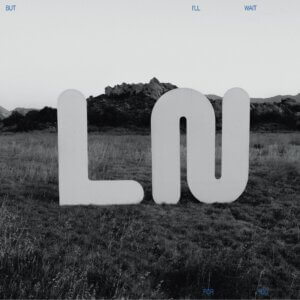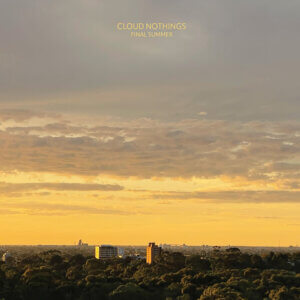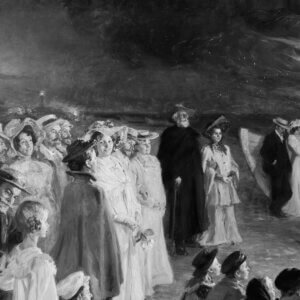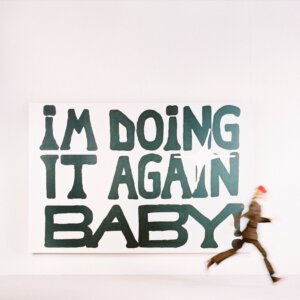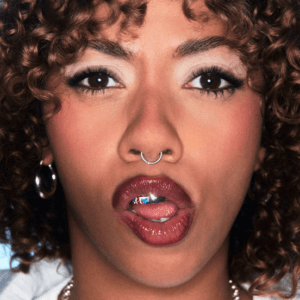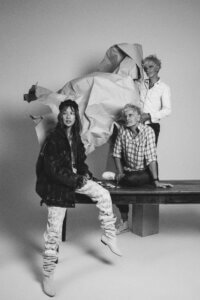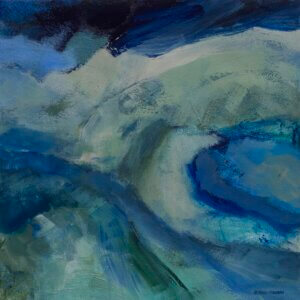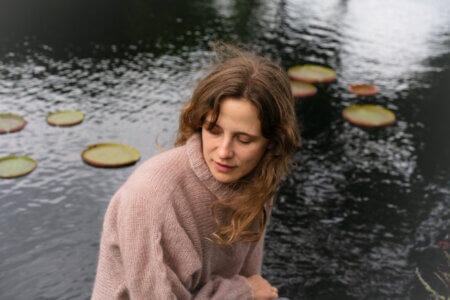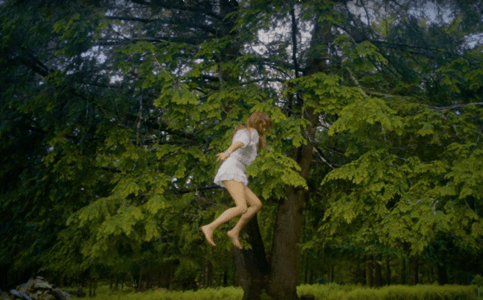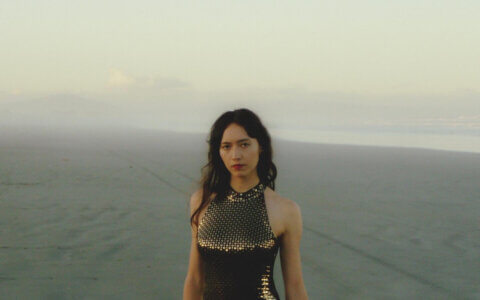Hildegard Share Their Creative connection
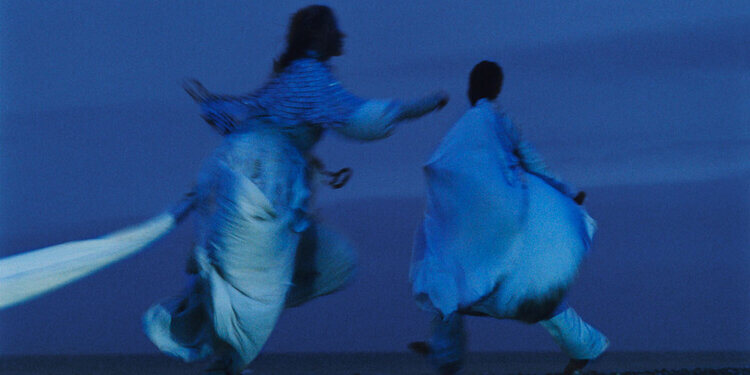
Broadening the scope of electronic experimentation, Hildegard set forth a path to explore what a new creative partnership sonically feels like. Comprised of singer-songwriter Helena Deland and multi-instrumentalist/producer Ouri, the band’s debut self-titled album was recorded in just 8 days and goes deep into the sphere of sonic collaboration. Speaking to Northern Transmissions, Hildegard explains their recording process, finding success in just 8 days and how they’re working to formulate a live show.
Northern Transmissions: What was it about one another that made you want to do an album together?
Helena Deland: We had two managers who worked in the same office, who must have been standing around the coffee machine and came up with the idea to book us in the studio. We agreed to because we knew of each other and had been acquaintances and friends without being very close, and then we got into the studio and we discovered our creative connection! Once the album was written after those eight days, that’s when we decided to become a band.
NT: That’s really interesting. Was there any kind of nerves or anxiety going into a studio with someone you had not worked with before?
Ouri: No, strangely we were not stressed and it created this magical experience. Helena Deland: It was a studio that was very warm feeling and welcoming. It wasn’t a very intimidating atmosphere, working together was just instantly rewarding.
NT: I want to talk about those eight days. You mentioned that the studio was booked for eight days, so did you only allow yourself to have eight days in the studio or is that just how long the album took?
Helena Deland: It was kind of like a circumstantial thing. There was this coincidence and that was the number of days that our managers had booked off for us.
NT: Do you think the timeframe affected the way the album came out?
Ouri: Yeah, for sure. We just decided to like each day do something different and like nurture an idea. At the end of the day we would always have something that we were super excited about and at the end of the eight days, we had eight tracks that represented and documented the energy that we created.
NT: With eight days and eight tracks, was each track written and recorded on the specific day it was named after? Or was the recording process a bit more scattered than that?
Ouri: No, it wasn’t really more scattered than that. It was like we had to get it out each day, I don’t know, it was pretty much done after each day. So I know some vocal takes or the structure we refined some elements after, but the essence was pretty clear.
NT: How did you find this process different from your work as individual artists? Have you done a collaboration like this before? What was new about this experience?
Helena Deland: I hadn’t done many collaborations where the work was so horizontal. So it was definitely a very new thing for me.
Ouri: I had some collaborations before…but like with Helena, we changed spots and we just changed roles or ideas resonated very fast and there was no pressure. It’s just like a game, a musical game.
NT: Going into the studio, did you go in with anything? Any ideas in mind? Or did you just want a blank slate to just start writing and recording when you got there?
Ouri: Yeah, it’s a blank slate. We only shared a playlist of like some influences of the moment, stuff that we just discovered ourselves musically, but no plan.
Helena Deland: Yeah. We only knew that we had Pottermore together and I was in Slytherin and Ouri was in Gryffindor, that was the only thing.
NT: Can you share some of those influences that maybe sparked some inspiration?
Ouri: We listened to some club music, some more pop things like FKA Twigs and A$AP Rocky.
Helena Deland: It was like the pleasure of finding what we had in common and I think that was really exciting because all the songs we both felt very strongly about and represented a very broad array of styles. I think, maybe that’s what kind of gave us excitement rather than apprehension because we knew we really connected over the music that we loved.
NT: I was wondering if you could talk about the album and the band’s namesake and why you decided to name this project after the 12th century nun Hildegard of Bingen?
Ouri: We wanted to have a name that speaks for itself, an homage to someone that I think we are both inspired by and just for people to talk about her. Her energy survived the erasing of women in history, it’s just so complex. It’s full of life and excitement and positivity.
Helena Deland: She was also a composer and wrote the “Canticles Of Ecstasy,” which felt like such a trippy title for an almost pre-medieval piece of music and Ouri had studied it in school and brought it to the table. I was super excited by discovery of this figure. She’s like a healer as well, a doctor, you know, I guess from our modern lens she becomes like a feminist.
NT: I wanted to talk about the single artwork in particular because I think it’s very mechanical, but artistic and beautiful at the same time. Where did the inspiration come for it?
Helena Deland: There was a lot of these dichotomies between, contemporary and ancient, mechanical and organic, one and two. Yeah, I think that’s kind of obvious and a weirdly like cold image, but they are also these trippy little machines, you know?
NT: Continuing with the visual aspects of this album, the videos that we’ve seen really pull from a wide range of influence whether it’s exploring nature or exploring your body or exploring yourself. What has been the approach with each of these videos and what has been the overall goal for visually representing this music?
Ouri: We wanted to express ourselves differently and show different sides. More personal! There’s a more personal connection to our representation of the music.
Helena Deland: “Jour 1” felt really fun because it’s like a representation of a time that is no longer in this context. A time where we could be together in clubs and enclosed spaces. So there’s still that kind of reflection of like day and yesteryear, but yeah… something more DIY because that’s a lot of what we do.
NT: Now that you have decided to be a band, will you want to tour this album and do live shows?
Helena Deland: Definitely want to do live shows, yeah! We’ve been thinking about it a lot. Obviously we kind of insisted on keeping it amongst just us two, so we don’t really intend on playing with any other musicians, which means that there will be some sequencing. We’re trying to like figure out what to prioritize in terms of what we should be interpreting live, in terms of instruments.
NT: How does that experience differ coming from being your own artists to now being in a band? Do
you have to think about live shows differently or is it the same regardless?
Ouri: I think it’s different that we are bringing in everything that we learned in our solo careers to this newer construction.
Helena Deland: We both have as much say as the other, so it’s really different than being a band leader because there are two of us basically. There’s no front woman, you know, it’s really the two of us.
Order Hildegard by Hildegard HERE
Latest Reviews
Tracks
Advertisement
Looking for something new to listen to?
Sign up to our all-new newsletter for top-notch reviews, news, videos and playlists.
